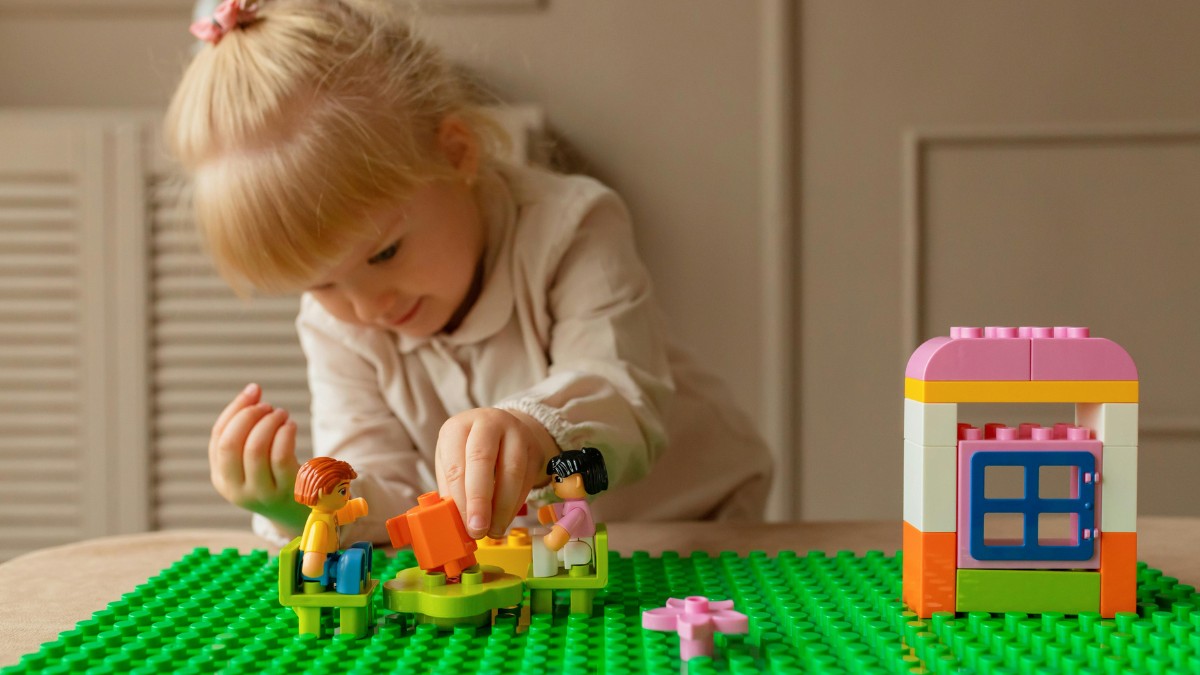Why "Refrigerator Mothers" are Blamed for Autism?
The "refrigerator mother" theory was first proposed by Leo Kanner, a psychiatrist who is often referred to as the "father of autism." Kanner believed that autism was caused by a lack of emotional warmth and affection from the child's mother.
.jpg)
Why "Refrigerator Mothers" are Blamed for Autism?
Why "Refrigerator Mothers" are Blamed for Autism?
Autism is a complex neurodevelopmental disorder that affects social interaction, communication, and behavior. There is still much to be learned about this condition, but one thing that is clear is that it is not caused by poor parenting.

However, there was a time when this was a commonly held belief. In the 1950s and 1960s, the term "refrigerator mother" was coined to describe mothers who were thought to be cold and unloving, and who were blamed for causing their children's autism.
This theory has since been debunked, but it is still important to understand why it was ever believed in the first place.
The Origins of the "Refrigerator Mother" Theory
The "refrigerator mother" theory was first proposed by Leo Kanner, a psychiatrist who is often referred to as the "father of autism." Kanner believed that autism was caused by a lack of emotional warmth and affection from the child's mother.
He described the mothers of autistic children as "just happening to defrost enough" to feed their children and then returning to their "refrigerator-like emotional state." This theory gained traction in the 1950s and 1960s, and many parents of autistic children were told that they were to blame for their child's condition.
The Impact of the "Refrigerator Mother" Theory
The "refrigerator mother" theory had a profound impact on the way that autism was perceived and treated. Many parents of autistic children were made to feel guilty and ashamed, and were blamed for their child's condition.
This led to a lot of unnecessary suffering and stigma for both the parents and the children. In addition, the focus on the mother as the cause of autism meant that other potential causes were overlooked, and research into the condition was limited.
The Debunking of the "Refrigerator Mother" Theory
In the 1970s, the "refrigerator mother" theory began to be challenged. Research showed that autism was a neurological condition, and that it was not caused by poor parenting.
In addition, studies found that the mothers of autistic children were no different from the mothers of non-autistic children in terms of their emotional warmth and affection. Despite this, the "refrigerator mother" theory continued to be believed by some, and it was not until the 1980s that it was officially debunked.
How the "Refrigerator Mother" Theory Affected Mothers' Mental Health?
The "refrigerator mother" theory had a significant impact on mothers of autistic children. They were often blamed for their child's condition and were made to feel guilty and ashamed, even though they had done nothing wrong.
Many mothers experienced feelings of isolation and depression as a result of being stigmatized by society. They were also subjected to harsh criticism from doctors and other professionals who believed in the "refrigerator mother" theory.
This blame placed on mothers caused significant harm to their mental health, leading to anxiety and depression. In addition, many mothers felt powerless in the face of this theory, as they could not control or change their child's autism diagnosis. This led to feelings of helplessness and despair.
It was only after the debunking of the "refrigerator mother" theory that these mothers were able to find support and understanding from society. Despite this progress, however, many still suffer from the emotional scars left by this harmful theory.
It is important to remember the impact that such theories can have on individuals and families, so we can avoid repeating such mistakes in the future.
How the "Refrigerator Mother" Theory Shaped Autism Research and Treatment?
The "refrigerator mother" theory had a significant impact on autism research and treatment. Because it was believed that poor parenting caused autism, there was little funding or attention given to researching biological or environmental factors that could contribute to the disorder.
Instead, researchers focused on finding ways to change the behavior of autistic children through psychoanalytic therapy.
This approach proved ineffective and harmful for many autistic individuals, who were subjected to harsh treatments such as shock therapy or institutionalization. It wasn't until the 1960s and 1970s that researchers began to question the "refrigerator mother" theory and look for other causes of autism.
As researchers began to investigate the neurological basis of autism, they made significant strides in understanding the condition. This led to new treatments, such as behavioral therapy and medication, that have been shown to be effective in managing some of the symptoms of autism.
However, because so much time and resources were wasted on researching the "refrigerator mother" theory, progress in understanding and treating autism was significantly delayed. Even today, there is still much we don't know about this complex disorder.
It is important to remember how harmful beliefs like the "refrigerator mother" theory can be when trying to understand complex conditions like autism. By focusing too narrowly on one possible cause or solution, we risk overlooking other important factors that could help us better understand and treat these conditions.
The Intersectionality of the "Refrigerator Mother" Theory with Gender, Race, and Class
The "refrigerator mother" theory not only had a significant impact on mothers of autistic children but also intersected with gender, race, and class. The theory reinforced traditional gender roles by placing the blame for autism solely on mothers and their perceived emotional inadequacies.
This reinforced the idea that women were primarily responsible for child-rearing and that they must be emotionally nurturing to prevent developmental disorders like autism.
Moreover, the "refrigerator mother" theory was believed to affect white, middle-class families more than others. Studies showed that this belief was not only harmful but also incorrect. The theory ignored the fact that autism affects individuals from all races, classes, and backgrounds.
Moreover, it ignored the fact that many mothers who were blamed for causing their child's autism had limited access to resources due to their socio-economic status.
The intersectionality of gender, race, and class in this context highlights how harmful beliefs can have disproportionate impacts on certain groups of people. It is important to recognize these intersections when studying complex conditions like autism to avoid perpetuating harmful stereotypes or exacerbating social inequalities.
Other harmful beliefs about autism that still persist today
Despite the debunking of the "refrigerator mother" theory, there are still many harmful beliefs about autism that persist today. One of these is the myth that vaccines cause autism.
This belief first gained traction in 1998 when a study by Andrew Wakefield was published in The Lancet claiming a link between the measles, mumps, and rubella (MMR) vaccine and autism.
The study was later found to be fraudulent, and Wakefield was stripped of his medical license. However, the damage had already been done, and many parents became afraid to vaccinate their children.
The truth is that there is no scientific evidence linking vaccines to autism. Numerous studies have been conducted on this topic, and none have found a causal relationship between vaccines and autism. In fact, not vaccinating children can put them at risk for serious illnesses like measles or whooping cough.
Another harmful belief about autism is that it can be cured or fixed. This belief can lead to dangerous treatments that promise to "cure" autism but are actually ineffective or even harmful.
These treatments can include things like chelation therapy, which involves removing heavy metals from the body through medication or supplements, or bleach enemas.
It's important to remember that there is no cure for autism because it is not a disease but rather a neurodevelopmental disorder. While there are therapies and treatments available that can help manage some of the symptoms of autism, they cannot "cure" it.
By continuing to believe in these harmful myths about autism, we risk stigmatizing individuals with this condition and depriving them of effective treatments and support. It's important to base our understanding of autism on scientific evidence rather than unfounded beliefs or misinformation.
The Importance of Increased Awareness and Acceptance of Autism
Despite the debunking of the "refrigerator mother" theory and other harmful myths about autism, there is still a significant lack of awareness and acceptance of this condition in society. Many people with autism face stigma, discrimination, and social isolation as a result.
This is why it's important to increase awareness and acceptance of autism in society. By educating people about what autism is and how it affects individuals, we can help break down stereotypes and reduce stigma.
This can lead to greater understanding and empathy for those with autism, which can in turn create a more inclusive and welcoming society for all.
Increased awareness can also lead to earlier diagnosis and intervention for children with autism. When parents, teachers, and healthcare providers are aware of the early signs of autism, they can take action to get children the support they need as early as possible.
This can make a significant difference in the long-term outcomes for these children.
In addition to increased awareness, we also need greater acceptance of individuals with autism. This means recognizing that everyone has unique strengths and challenges, including those with autism. It means creating inclusive environments where individuals with autism feel valued and supported.
By increasing awareness and acceptance of autism in society, we can create a more compassionate world that celebrates diversity and recognizes the inherent worth of all individuals.
The Importance of Community Support for Families Affected by Autism
Families affected by autism often face a unique set of challenges that can be difficult to navigate alone. That's why it's important for these families to have access to community support. Community support can come in many forms, including support groups, online forums, and local organizations.
One major benefit of community support is the opportunity for families to connect with others who are going through similar experiences.
This can help reduce feelings of isolation and provide a sense of belonging. It can also provide a space for families to share their struggles and successes with others who understand what they are going through.
In addition, community support can provide families with access to valuable resources and information. Many local organizations offer workshops, seminars, and training sessions on topics related to autism, such as behavioral therapy or special education programs.
These resources can help families better understand their child's condition and find the best ways to support them.
Another important aspect of community support is advocacy. Local organizations and support groups often advocate for policies that benefit individuals with autism and their families. They may work to increase funding for research or push for better access to services like healthcare or education.
Overall, community support plays a crucial role in helping families affected by autism navigate the challenges they face. By connecting families with resources, information, and each other, we can create a more supportive and inclusive society for all individuals affected by autism.
FAQs
Is the "refrigerator mother" theory still believed by some people today?
While the theory was officially debunked in the 1980s, there are still some who believe that poor parenting or emotional neglect can cause autism. However, this belief is not supported by scientific evidence and has been widely discredited by the medical community.
Did the "refrigerator mother" theory have any positive impact on understanding or treating autism?
No, the "refrigerator mother" theory did not have any positive impact on understanding or treating autism. In fact, it delayed progress in these areas by focusing too narrowly on one possible cause of the disorder and overlooking other important factors.
Are mothers solely responsible for raising children with autism?
No, raising a child with autism is a collective responsibility that involves parents, caregivers, healthcare providers, educators, and society as a whole. Blaming mothers for their child's condition only serves to stigmatize and marginalize them and does not reflect the complex nature of autism.
Can autism be prevented through better parenting practices?
No, there is no evidence to suggest that parenting practices can prevent or cure autism. Autism is a neurodevelopmental disorder that is caused by a complex interplay of genetic and environmental factors.
How can I support families affected by autism?
There are many ways to support families affected by autism. One way is to educate yourself about what autism is and how it affects individuals. This can help reduce stigma and increase empathy for those with autism.
You can also volunteer your time or donate to local organizations that provide support and resources for families affected by autism. Additionally, you can advocate for policies that benefit individuals with autism and their families at the local and national levels.
Conclusion
The "refrigerator mother" theory was a harmful and misguided belief that caused a lot of unnecessary suffering for both parents and children with autism.
While it has since been debunked, it is important to understand why it was ever believed in the first place, and to ensure that similar harmful and misguided beliefs do not gain traction in the future.
Autism is a complex condition that requires further research and understanding, but we can start by acknowledging that it is not caused by poor parenting, and by providing support and resources for families affected by the condition.














